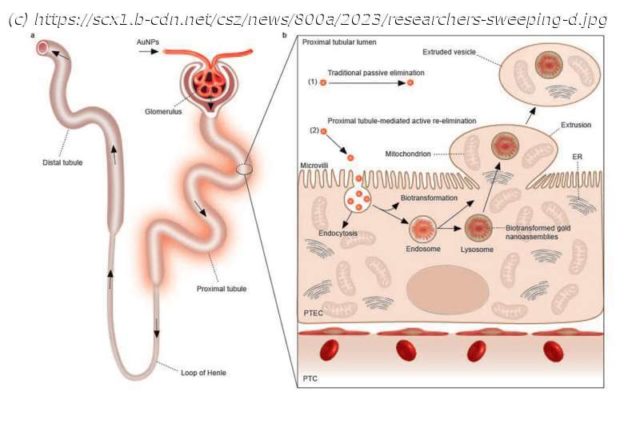University of Texas at Dallas scientists have discovered a previously unknown “housekeeping” process in kidney cells that ejects unwanted content, resulting in cells that rejuvenate themselves and remain functioning and healthy.
University of Texas at Dallas scientists have discovered a previously unknown “housekeeping” process in kidney cells that ejects unwanted content, resulting in cells that rejuvenate themselves and remain functioning and healthy.
The self-renewal process, which is fundamentally different from how other bodily tissues are thought to regenerate, helps explain how, barring injury or disease, the kidneys can remain healthy for a lifetime. The researchers described the mechanism in a study published April 17 in Nature Nanotechnology.
Unlike the liver and skin, where cells divide to create new daughter cells and regenerate the organ, cells in the proximal tubules of the kidney are mitotically quiescent—they do not divide to create new cells. In cases of mild injury or disease, kidney cells do have limited repair capabilities, and stem cells in the kidney can form new kidney cells, but only up to a point, said Dr. Jie Zheng, professor of chemistry and biochemistry in the School of Natural Sciences and Mathematics and co-corresponding author of the study.
“In most scenarios, if kidney cells are severely injured, they will die, and they cannot regenerate,” said Zheng, a Distinguished Chair in Natural Sciences and Mathematics. “Your kidney will just fail sooner or later. That’s a big challenge in health management for kidney disease. All we can do currently is slow down the progression to kidney failure. We cannot easily repair the organ if it’s injured severely or by chronic disease.
“That’s why discovering this self-renewal mechanism is probably one of the most significant findings we’ve made so far. With excellent core facilities and dedicated staff, UTD is a great place to do such cutting-edge research.






